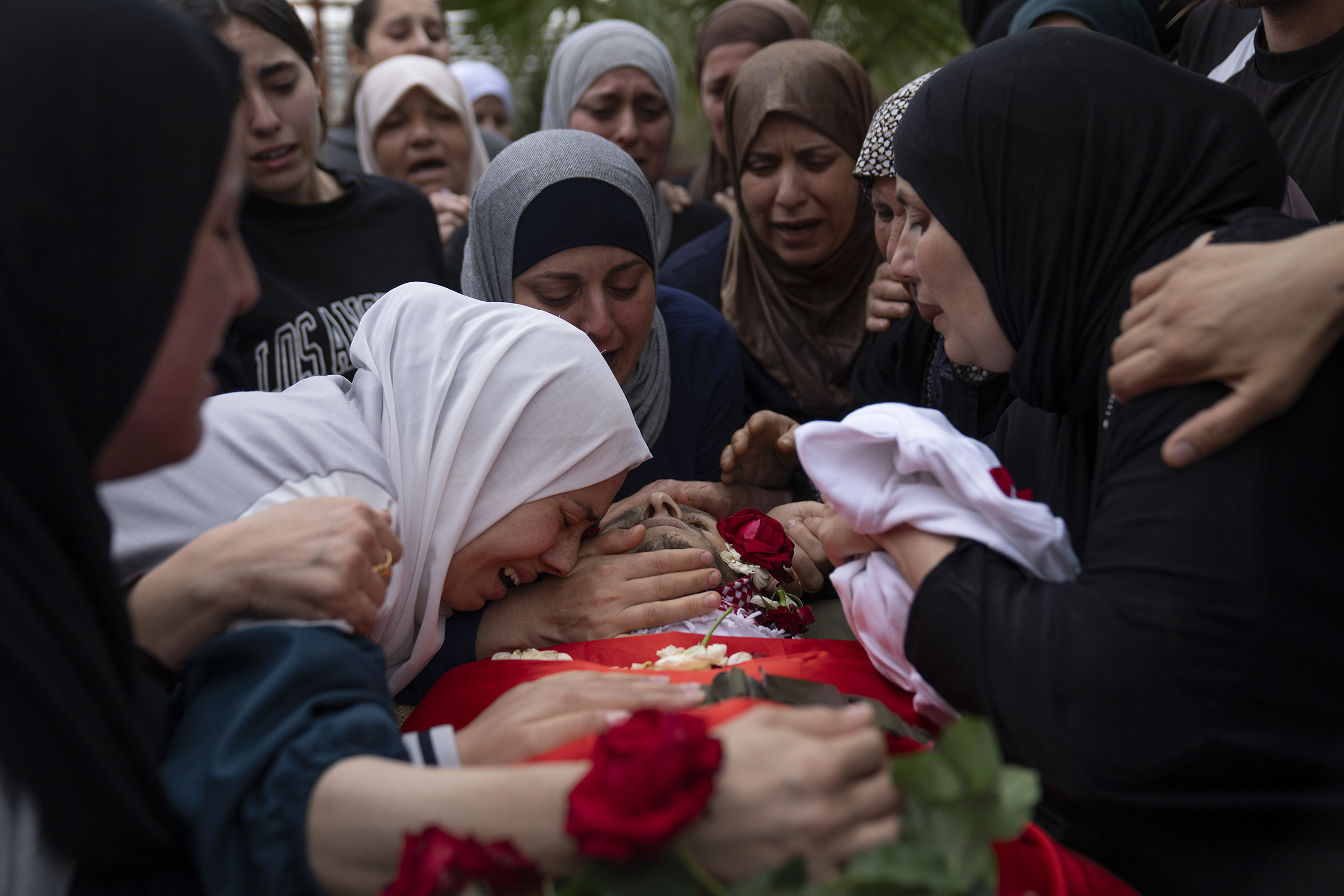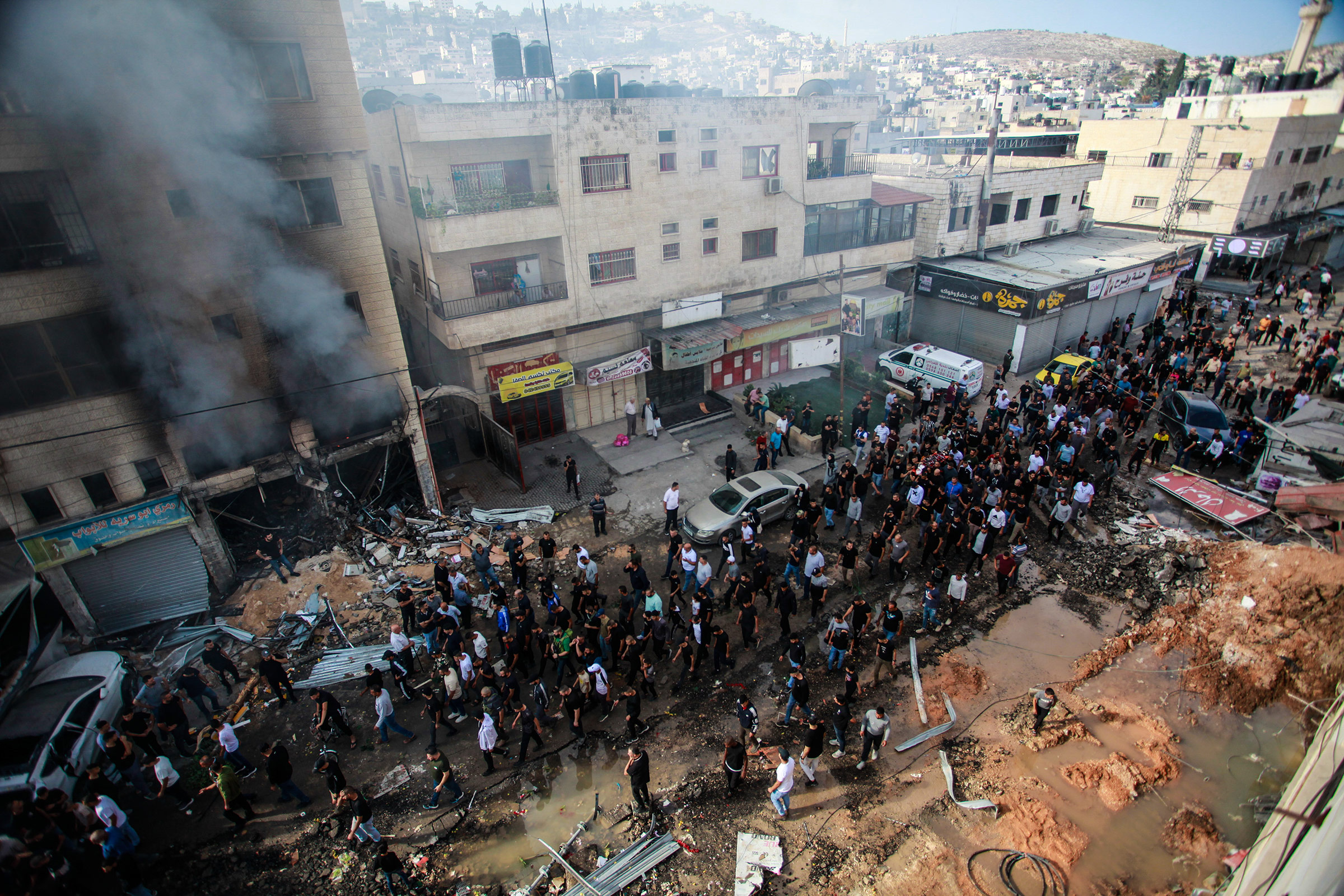The Oct. 7 Hamas attack on Israel that left 1,400 people dead has appalled the world and fundamentally reshaped the contours of the Israeli-Palestinian conflict, drawing international attention to Gaza. But while U.S. and international diplomacy is understandably focused on efforts to save lives in Gaza—both Palestinian civilians and Israeli hostages—the world must not lose sight of the worsening political and human rights crisis in the West Bank.
Palestinians in the West Bank have faced increased settler violence and attacks from Israeli soldiers since the Hamas attack one month ago, and there is now a serious risk of widespread violence in the whole West Bank, rendering a cessation of hostilities and safe release of Israeli hostages in Gaza even further out of reach.
Hardline elements in the government led by Prime Minister Benjamin Netanyahu and its supporters show every sign of using the latest Gaza war as a distraction from their agenda: continuing to expand illegal Israeli settlements in the West Bank, drive Palestinian families from their land, and deprive them of the right to live in peace and security.
Read More: How Netanyahu Undermined Israel’s Security
In the West Bank, Palestinian families and communities are victims of harassment, violence, and forced displacement on a systemic basis. There is widespread collusion between religious settlers and Israeli soldiers, creating a toxic environment of attacks and impunity.
Israeli and Palestinian human rights organizations report that 163 Palestinians have been killed in the West Bank by Israeli security forces and settlers since Oct. 7, and more than 900 adults and children were forcibly driven from their homes following settler violence.
This violence and forced displacement give further grounds for fears we both heard repeatedly from Palestinian families and civil society groups during our visit to the region in June 2023. They warned of a second Nakba, or “catastrophe,” referring to the mass expulsion of Palestinians from their land in 1948 during the establishment of the State of Israel.

These fears have been further stoked over the past year by the explicit declaration in the current Israeli Government’s Coalition Guidelines that “the Jewish people have an exclusive and inalienable right to all parts of the Land of Israel.”
As we warned after visiting in June, such language clearly shows an intent to pursue permanent annexation rather than temporary occupation. Its basis in Jewish supremacy is incompatible with the principles of a two-state solution and the values of human rights and democracy.
The expansion of settlements and settler violence do not make Israel more secure. Instead they inflame violent resistance and put a sustainable political solution further out of reach.
We agree with U.S. President Joe Biden that only a two-state solution can provide Israelis and Palestinians alike with the peace, security, and dignity that both peoples deserve.
Read More: The World’s Job During the War on Hamas
It is now 30 years since the Oslo accords that put forward that solution and which remain the only credible framework for peace. However, the U.S. and the wider international community in general have for too long abdicated their responsibilities toward this conflict.
There is now an absence of any political horizon toward a two-state solution that can end Israel’s occupation of Palestinian territories and guarantee Israel’s security.
In this moment of intense polarization, it is critical to remember that the current Government of Israel does not speak for all its citizens. On our visit we met many Israeli human rights organizations and private citizens who reject its agenda of expanding settlements, and are committed to the values of justice, equality, and democracy.
We heard how much it pained them to describe the situation in the occupied Palestinian territories as one of apartheid, and to acknowledge their own society’s complicity in this crime. But we also heard their insistence that decent Israelis should stand up and demand change—and their call for support from the Jewish diaspora and others in the international community who share their concern.
Such solidarity needs to go beyond words. In the face of complicity and indifference from the government and the Israel Defense Forces, we call on lawyers and civil society organizations to continue gathering evidence of crimes in the West Bank so the International Criminal Court will be able to assess whether to prosecute, including for the crime of apartheid.
We also call on the U.S. and the international community to influence the Government of Israel to cease its support for settler expansion and its cover for settler violence in the West Bank. All parties must work together to reestablish a political horizon toward a two-state solution that can end Israel’s occupation of Palestinian territories and guarantee Israel’s security.
In a context of increasing global conflict, including in Ukraine and parts of Africa, the international community must show it is serious about justice and accountability. This means it must provide additional resources to the ICC to enable it to fulfil its mandate properly and even-handedly.
All of us owe it to Israelis and Palestinians across the West Bank, East Jerusalem, and Gaza to deliver both peace and justice, so their children can live their lives free from war, hatred, and oppression.
Mary Robinson and Ban Ki-moon are Chair and Deputy Chair of The Elders. Mary Robinson is a former President of Ireland and U.N. High Commissioner for Human Rights. Ban Ki-moon is a former U.N. Secretary-General.
- What Student Photojournalists Saw at the Campus Protests
- How Far Trump Would Go
- Why Maternity Care Is Underpaid
- Saving Seconds Is Better Than Hours
- Welcome to the Golden Age of Ryan Gosling
- Scientists Are Finding Out Just How Toxic Your Stuff Is
- The 100 Most Influential People of 2024
- Want Weekly Recs on What to Watch, Read, and More? Sign Up for Worth Your Time
